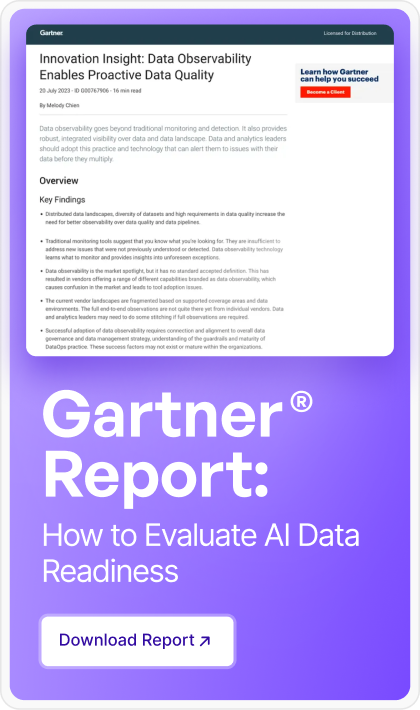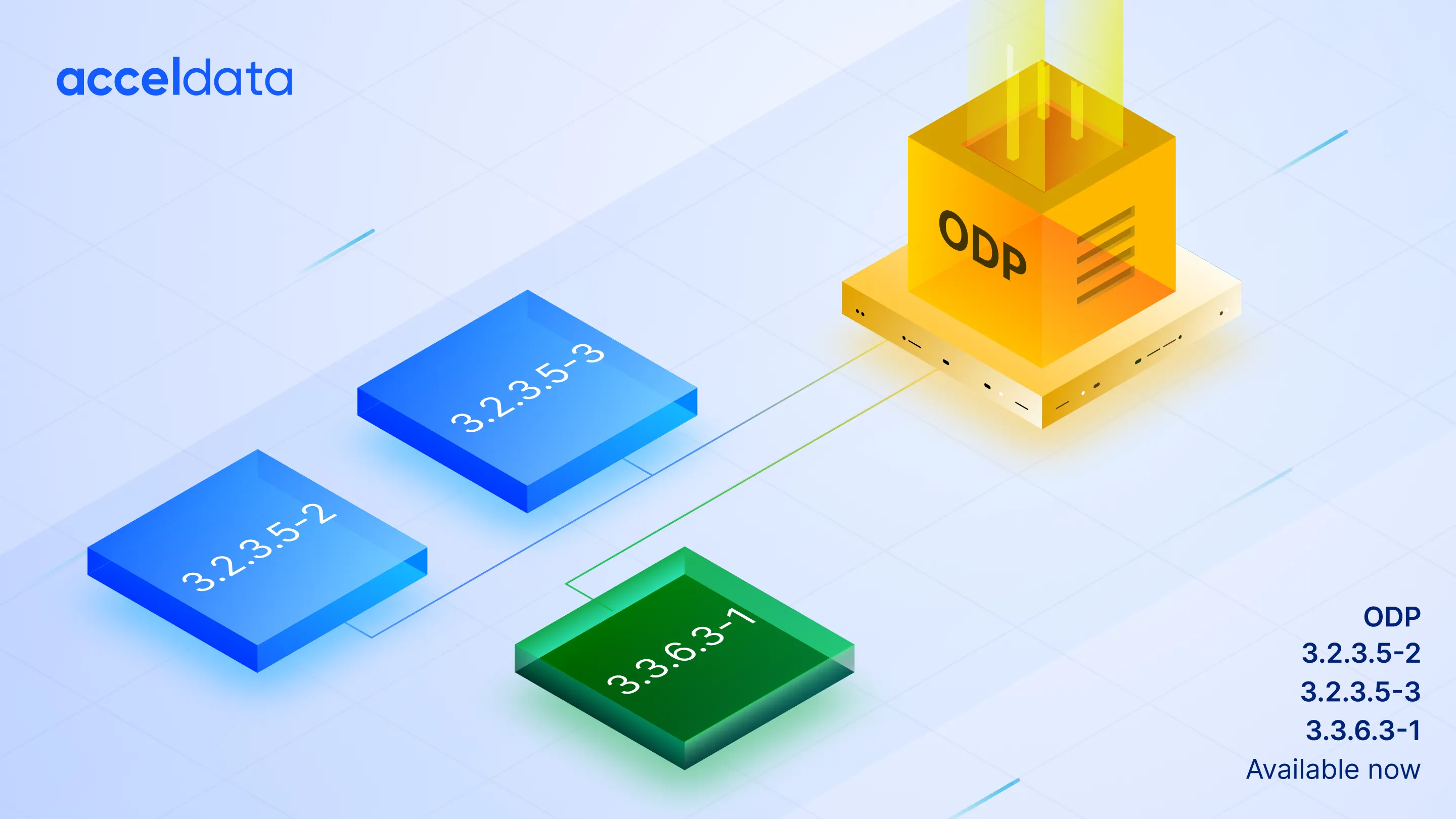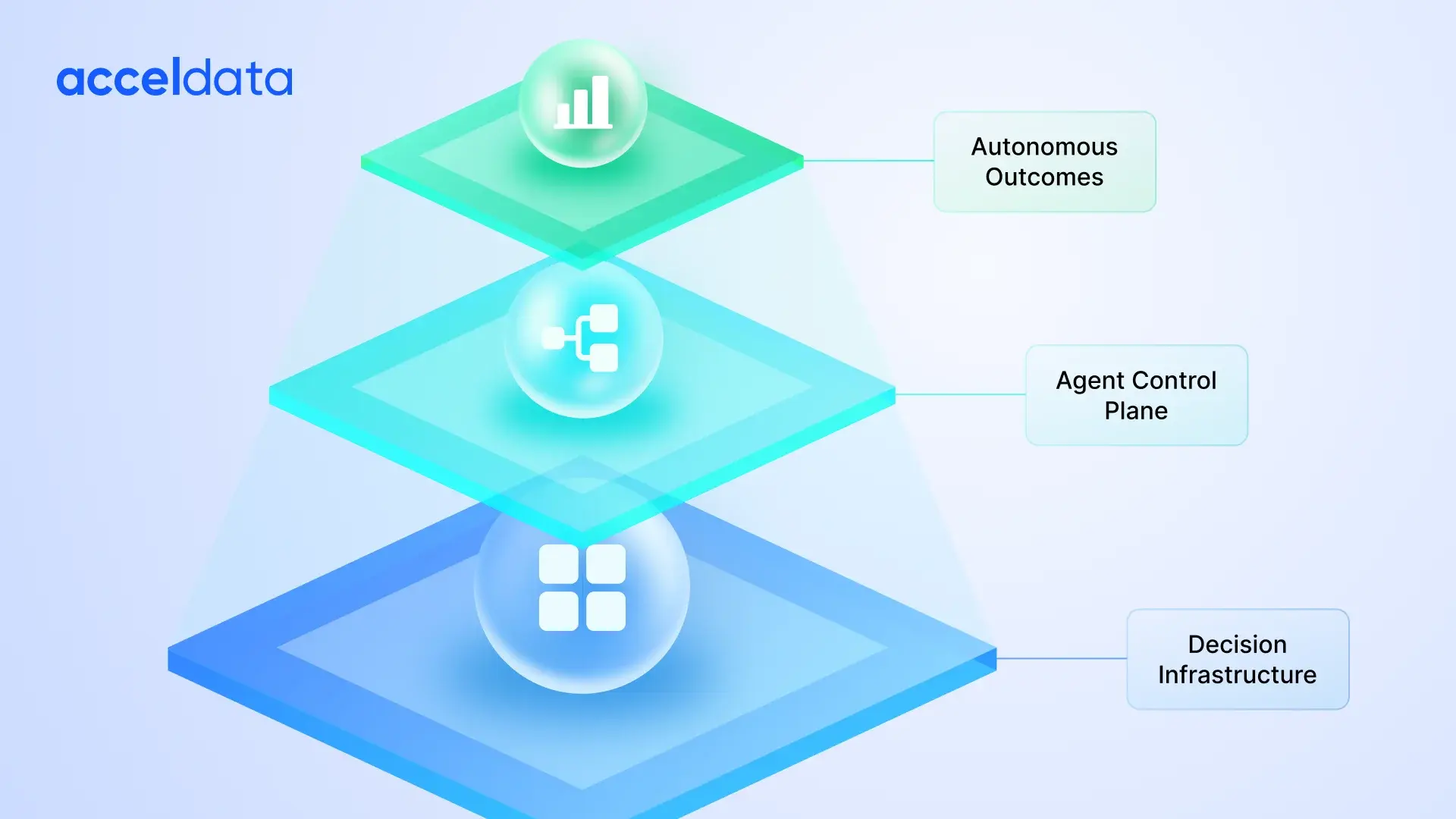Data isn't a pile of facts anymore; it has now become a tool that helps you provide top-notch service to your customers.
According to a new CX Network report, an expert network of customer experiences, businesses have started investing significantly (54% growth in investments in 2024) in data analytics. Additionally, a McKinsey report suggests that a data-driven company is 23 times more likely to acquire new customers.
However, data needs to be stored appropriately and undergo significant processing to be useful. A suitable storage mechanism is essential. But how does an organization choose between data warehouse vs data lake? Let's break down the two terms to understand them better.
Understanding Data Lake
A data lake is a centralized repository that ingests and stores large amounts of data. This data can be structured, semi-structured, or unstructured. It can store data in its raw form without any limitations on size limitations.
Data lake can store data from sources such as cloud, on-premises, and edge-computing systems. You can use it to batch-process data using Python, R, SQL, or any other language or analytics application.
Giants such as Amazon Web Services, Microsoft Azure, and Google Cloud are some of the widely known hosts for data lakes.
Benefits of a data lake
A data lake enables you to store all types of data in a single location at a low cost. This stored data can be accessed as analytical needs arise. However, what advantages does consolidating your data in one place offer?
Let's take a look at some of the benefits of data lake:
- Scalability: Scalable data lakes make it simple to store petabytes of data.
- Flexibility: Data lakes support various types of data, such as text, media, and audio.
- Cost-effectiveness: Data lake is a cost-effective solution to store large amounts of data.
- No silos: Data lakes can store data from multiple sources, freeing them of their individual capabilities and reducing data duplication.
- Analytics: This non-siloed nature makes it feasible to analyze data that was not previously available.
Challenges of a data lake
Data lakes offer several advantages to users. However, akin to every emerging technology, data lakes come with a set of shortcomings that might make them unsuitable for certain scenarios.
Let's take a look at these limitations to help you make a more informed decision for your organization:
- Complexity: Managing the large amount of data stored in these lakes can become quite challenging. If not managed properly, data can spiral into chaos, complicating its integration with business intelligence applications and hindering your analytics efforts.
- Data swamp: Improper management of data can lead to a data lake turning into a data swamp without any metadata and organization. This can render data inaccessible for some individuals or departments, effectively turning it into data silos.
- Sensitive data: Storing sensitive data in a data lake can lead to security concerns if enough precautions are not taken.
- High initial investment: Data lakes can prove to be cost-effective in the long run; however, the initial investment required to set up a data lake can be quite high.
Understanding Data Warehouse
Data warehouse is also a centralized storage solution where companies store their data for later use in analytics and reporting. It is designed to store only structured data. This is the key difference between a data warehouse and a data lake.
Data warehouse uses relational schema, primarily SQL, to read data and conduct analytical operations such as reports and visualizations. Furthermore, data warehouses have been around for much longer than data lakes and are largely utilized by most organizations that collect consumer data.
Benefits of a data warehouse
Several factors contribute to the lasting relevance of data warehouses, even with the advent of more versatile storage options. Here, we look at the most impactful benefits that drive the popularity of data warehouses:
- Data integrity: Data warehouse is designed for structured data. Thus, stored data is consistent and helps maintain data integrity.
- Security: It is possible to implement robust security features in a data warehouse, including encryption and access control.
- Performance: It is easier to perform complex queries and generate reports from a data warehouse. as the data is stored in a structured manner.
- Data reliability: Data warehouses inherently ensure consistent and reliable data quality, reducing the need for the organization to implement additional measures.
- Historical data: Data warehouses can also store historical data for better analysis and more informed results.
Limitations of data warehouse
Data warehouses have been around for decades now and have developed significantly over time. However, they still face certain limitations and drawbacks.
Here are some factors to consider that might make you hesitate to choose data warehouses for your storage needs:
- Inflexibility: Data warehouses follow a structured approach, which means it is not possible to store unstructured data. Any unstructured data would require additional processing to make it suitable for storage in a warehouse. Furthermore, storing data in a warehouse might not be feasible if the amount of unstructured data is high.
- Undefined ownership: Often, the data in a warehouse involves multiple teams or departments. In such a scenario, it is complex to determine who owns what part of the data. Failure to make a clear distinction might result in data inefficiency and management problems.
- High cost: Investing in a data warehouse can be a costly proposition. It requires significant hardware and software along with skilled personnel for implementation and management. Furthermore, ongoing maintenance cost can be quite high.
- Hidden issues: Issues related to data integration, transformation, or quality can occasionally arise in a data warehouse. Finding and resolving these issues can prove to be time and resource consuming. If left unchecked, these issues can lead to faulty reports and visualizations.
Use Cases: Data Warehouse vs Data Lake
Data lakes and data warehouses share many similarities and are primarily used for storage and processing of data. However, each has its own unique specialties. Consequently, both of them have separate use cases.
Enterprises need to incorporate both in their ecosystem to obtain an end-to-end secure system for the storage and processing of data.
Data lake examples
Leading companies such as Coca-Cola, AstraZeneca, and C4ADS use data lakes to tackle various challenges, ultimately enhancing their operational efficiency and customer service.
These organizations can streamline processes, gain insights for better decision-making, and deliver more personalized experiences to their customers by integrating vast amounts of data.
Let's begin by exploring some use cases of a data lake:
- Big data analytics: It is ideal for storing and analyzing large amounts of raw data.
- Machine learning: It can be an ideal resource for datasets to train machine learning models.
- Marketing: It helps marketing professionals collect data from multiple sources and store it in a single repository.
- Education: Educational institutions use data lakes to store various types of data, such as attendance, grades, and other metrics. Data lakes provide them with the flexibility required to store these types of data in a single location.
Data warehouse examples
Companies belonging to various industries such as Beyerdynamic (an audio production company), Continental Airlines, and D Steel use data warehouses for successful data analytics.
Let's examine some use cases of a data warehouse:
- Business intelligence: It supports generating reports and visualizations based on data analytics. These reports help in making data-driven decisions.
- Data mining: The structured nature of data facilitates the extraction of patterns and relationships within the data.
- Finance: Financial institutions use data warehouses to provide company-wide access to the data. This enables them to generate accurate and secure reports directly from the dataset instead of using additional tools such as Excel.
- Food and beverages: Companies in this sector can use data warehouses to store their sales, inventory, marketing, and supply chain data in one place.
How to Choose Between Data Lake and Data Warehouse?
The decision to choose between a data lake and data warehouse boils down to one key factor: structured vs unstructured data. Your decision will be largely influenced by the type of data you deal with primarily.
Using both in tandem is a sensible strategy; however, several enterprises prefer data lakes for their increased capacity and agility. Nevertheless, experts advise caution, as the newer concept of data lakes may lead to a higher likelihood of encountering unexpected errors.
You may opt for a simpler solution by letting experts such as Acceldata handle these integrations for you. Contact Acceldata now to discover what suits you the best!
Summary
Known for their flexibility, data lakes are primarily used to store unstructured data. Conversely, data warehouses are designed to store structured data, providing a consistent framework that enhances the accuracy of analytics. This uniformity allows organizations to perform reliable data analysis and generate actionable insights effectively.
It's essential to evaluate the types of data you will primarily handle and how that data will be used within your organization. This understanding will enable you to make informed decisions about the most appropriate data management strategies to implement.








.png)








.webp)
.webp)


